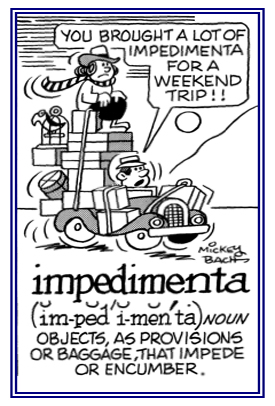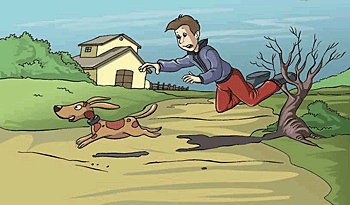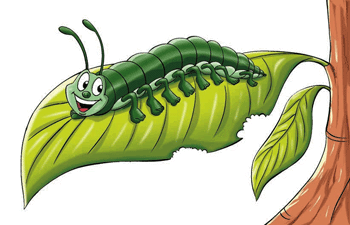ped-, pedi-, -pedal, -ped, -pede, -pedia
(Latin: foot, feet; people often see this ped element in other words. When people refer to "pedal extremities", they mean "feet". When anyone pushes the pedals of a bicycle, it is done with the feet. A pedestrian must use the feet for walking. A quadruped has four feet while a centipede has "100 feet"; or a large number of them because it may be impossible to count all of them.)
James first had to put away all the impedimenta on his desk; including papers, pencils, rulers, paperclips, notebooks, etc., before his new computer was brought to his room and set up.

Go to this Word A Day Revisited Index
so you can see more of Mickey Bach's cartoons.

2. Not convenient or practical.
3. Inadvisable; not recommended or prudent (formal usage).
Millipedes are vegetarian and, in contrast with centipedes, lack poison glands, although most kinds produce irritating fluids that repel predation by birds.
2. An insect having many feet; such as, a polyped or a myriapod.

The route for the race was well planned with one major obstacle about half way through the course.
Being short was never an obstacle to Jerry's success as a singer.
Karin worked hard to overcome the impediment of a lisp in her speech.
Bonita figured the mountain was just another impediment. She was determined that there would be no obstacle to her summer hiking vacation.
A "lowly chess piece" is from about 1369, from Anglo-French poun, Old French peon, and earlier pehon; which came from Middle Latin pedonem, "foot soldier" from Late Latin pedonem, "one going on foot", which in turn came from Latin pes, "foot". The application of the chess sense existed in Old French by the 13th century.
3. Borrowing and leaving an article as security for repayment of a loan.
2. Of, pertaining to, or connected with the foot or feet.
3. To work the pedals of a bicycle, etc. so as to propel it.
The pedal on his grandmother's sewing machine was fun for Andrew to use.
2. A lever set in motion for circular drive; treadle: When using her grandmother's old sewing machine, Bonita used her right foot to press on the pedal which made the whole thing work.After Jeremy decided to peddle the produce from his garden in town, he realized he would have to pedal his bicycle up the hill and as he brushed next to the rosebushes, he discovered some pink petals on his pants.
Keep in mind that all of the ped words which you see in English are not always from the Latin "foot" or "feet". There are also some Greek ped words in English which do not mean "foot"! So, don't confuse this Latin element with a Greek pedo- that means "child" or the Greek pedo- which means "ground, soil".
If you want to leave footprints in the sands of time, don’t drag your feet.


